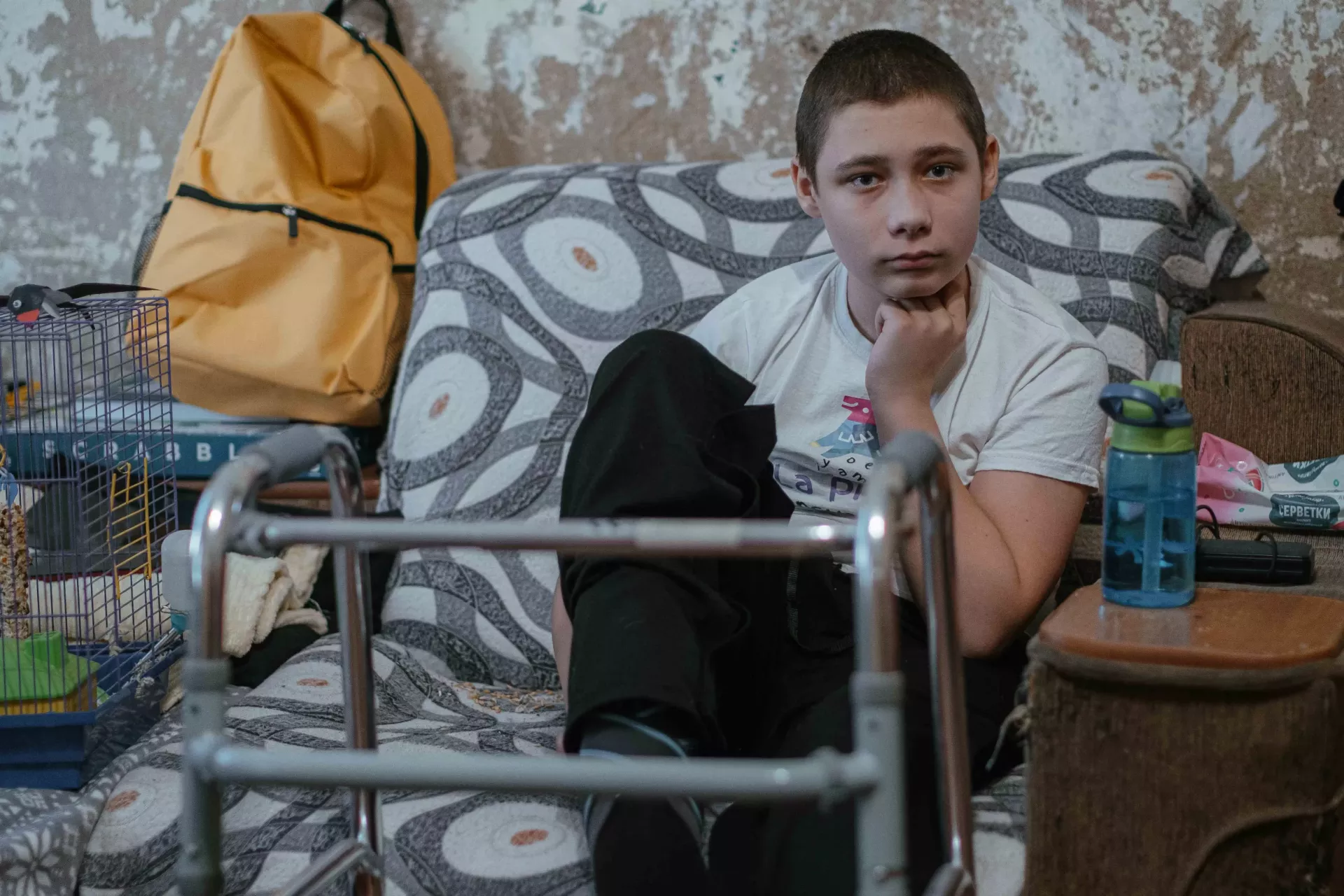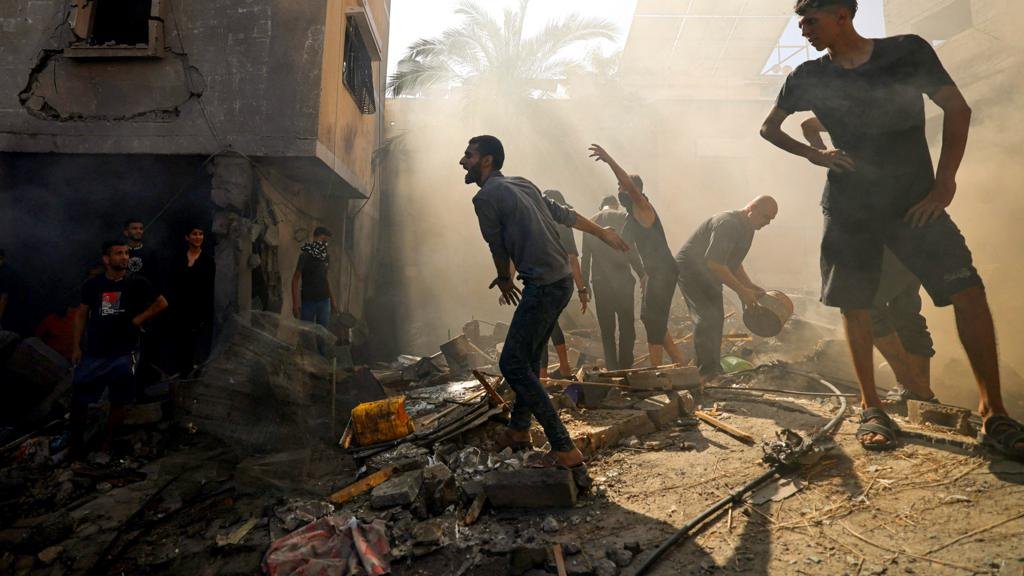Nazar never imagined he would spend his 13th birthday in a hospital ward instead of celebrating at home with friends and family. What should have been the beginning of his cheerful teenage years became yet another day confined to the walls of a hospital room.
It was a regular Monday morning, November 4 2024, when Nazar’s life changed forever. After finishing his online school lessons, he went for a walk with a friend, not far from their homes. “We were beyond the highway,” Nazar recalls. “I don’t even remember where exactly we were going.”
During their walk, his friend noticed something on the ground and, without thinking, kicked it. The object turned out to be unexploded ordnance.The explosion that followed left both boys injured. Nazar suffered severe leg injuries, and his friend was hit in the torso. Their phones were thrown from them by the blast, but Nazar, in pain and bleeding, crawled through the mud to find his phone and managed to call for help.
“We got a call that Nazar had contacted the ambulance himself, saying his legs were torn off,” his mother, Yevheniia, recalls. “At first, the ambulance didn’t even believe him. He was rushed to the closest hospital in Barvinkove, where doctors provided emergency treatment before transferring him to a specialized facility in Kharkiv, three hours away.”
Nazar is Yevheniia’s second son. She also has three other boys. Slavko, the eldest, and Matvii and Denys, the youngest. The family’s home was damaged by shelling in 2022 and still needs repairs. “I planned to fix the house this winter,” Yevheniia says, “but after what happened to Nazar, his health became the priority.”
The first few weeks after the accident were uncertain and terrifying. Doctors couldn’t give a clear prognosis. “We had to monitor the soft tissue,” she explains. “If necrosis started, they would have to amputate more.”
Nazar ultimately went through 14 surgeries. He suffered fractures, deep shrapnel wounds, and hemorrhagic shock. Part of his right foot was amputated. Since that tragic day in November, Nazar has only been home twice, brief visits in between intensive treatments.
“Rehabilitation is just beginning for us,” Yevheniia says. “The first operation happened when we arrived in Kharkiv. Then came two more for skin grafts. Just two weeks ago, doctors removed the metal plates, and now rehab can finally start.”On his most recent trip home, Nazar arrived using crutches and a walker. After the explosion, he could only lie down or sit. Now, with the help of the walker, he’s slowly learning to walk again, taking small steps forward in both body and spirit.
His physical wounds are healing, but emotionally, the journey is much longer.Throughout it all, Yevheniia has stayed by his side in Kharkiv, while his three brothers stayed with their grandmother. “I’ve come to terms with what happened,” she says. “I’ll do everything I can to make sure Nazar lives a full, healthy life.”
When case manager Olena Hunchenko from the International Rescue Committee first visited, Nazar was withdrawn. “It was likely a shock reaction,” she says. “At first, he didn’t talk much. But over time, he opened up, talking about his studies, his hobbies, and even the details of the accident. “
Olena had first heard about Nazar’s injury through the news. She immediately found Yevheniia’s contact information and reached out to offer help. Thanks to a child-focused survivor assistance programme supported by UNICEF and the International Rescue Committee, with funding from the EU—Nazar received cash support, mental health services, and essential rehabilitation tools like crutches and a walker. This support has been a vital part of his recovery and has helped ease the burden on Yevheniia and the rest of the family.
Nazar says he had taken mine safety lessons at school before the incident but never imagined his own village could be dangerous. Living in Nikopol, which is near the front line and frequently shelled, means that unexploded ordnance can be found almost anywhere, posing a serious threat, especially to children.“The danger from explosive ordnance can be hidden in the most familiar places,” says Svitlana Kisilova, a Social Behaviour Specialist with UNICEF Ukraine. “That’s why it’s so important to teach children practical safety rules, never touch unknown objects, always tell a trusted adult, and call 101 to report any danger.”
These days, Nazar is studying online again and enjoys reading books on the tablet he received through the programme. He is especially good at maths and used to love playing football with his friends before the injury.
In a few weeks, Nazar and his mother will return to Kharkiv to continue rehabilitation. The road ahead is still long. Olena, his case manager, adds, “Sadly, Nazar is not the only child I have worked with in the Kharkiv region. I have supported more than 30 children, many injured by unexploded ordnance or during shelling.” Despite everything he is been through, Nazar still manages to smile, a brave 13-year old boy determined to reclaim his life one step at a time.






